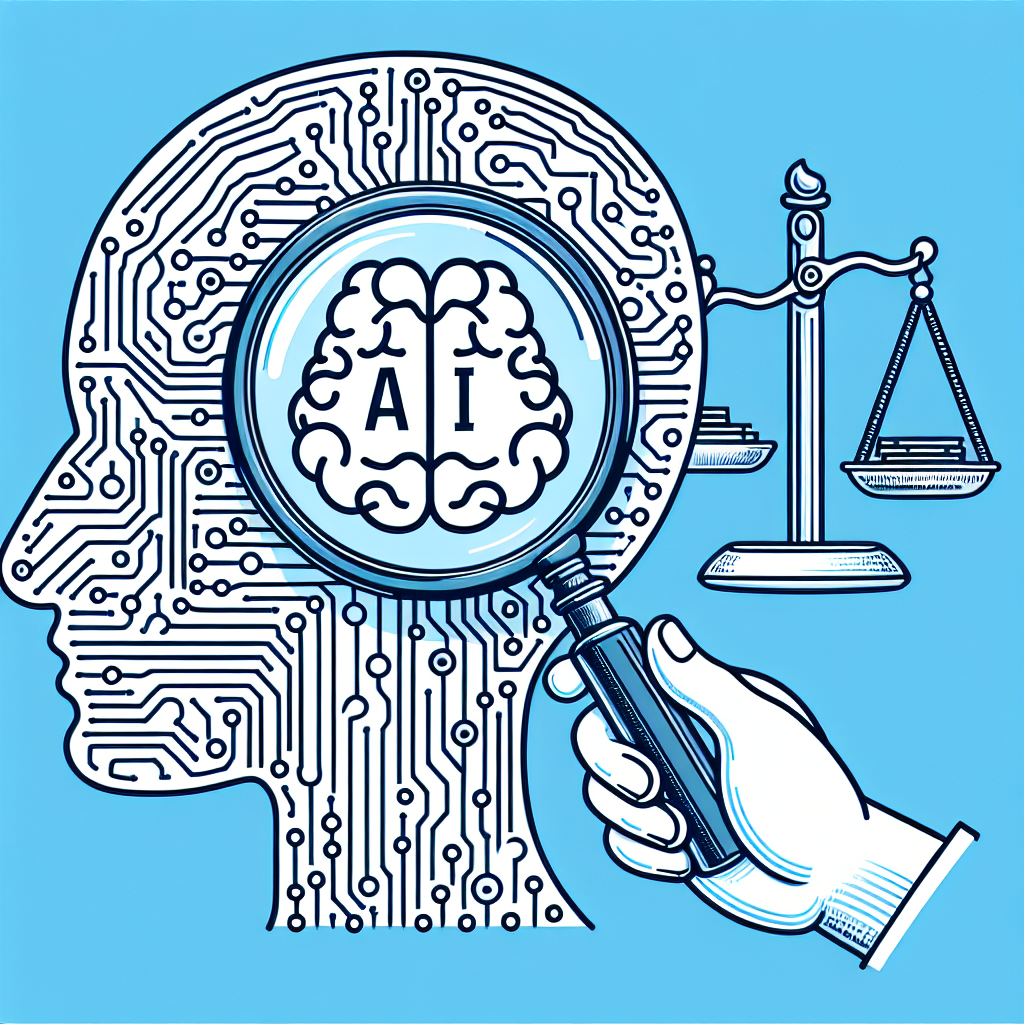Artificial Intelligence (AI) has become an integral part of our daily lives, from personal assistants like Siri and Alexa to self-driving cars and facial recognition technology. While AI has the potential to revolutionize industries and improve efficiency, there are ethical considerations that must be addressed in its development and deployment.
The ethical implications of AI development are vast and complex, encompassing issues such as privacy, bias, accountability, and the impact on society as a whole. As AI technologies become more advanced and pervasive, it is crucial that developers, policymakers, and society as a whole engage in discussions about the ethical implications of AI development.
Privacy is a major concern when it comes to AI technology. As AI systems collect and analyze vast amounts of data about individuals, there is a risk that this data could be misused or compromised. For example, facial recognition technology has raised concerns about the potential for government surveillance and invasion of privacy. Additionally, AI algorithms can be biased, leading to discriminatory outcomes in areas such as hiring, lending, and criminal justice.
Accountability is another key ethical consideration in AI development. As AI systems become more autonomous and make decisions without human intervention, it is important to establish clear lines of accountability for the outcomes of these decisions. Who is responsible when an AI system makes a mistake or causes harm? How can we ensure that AI systems are transparent and accountable for their actions?
The impact of AI on society is also a critical ethical consideration. As AI technologies disrupt traditional industries and change the way we work and live, there is a risk of widening inequality and social unrest. It is important to consider the social implications of AI development and work towards solutions that benefit all members of society.
In order to address these ethical considerations, it is important for developers, policymakers, and society as a whole to engage in discussions about the values and principles that should guide the development and deployment of AI technologies. This includes developing ethical guidelines and standards for AI development, as well as promoting transparency and accountability in the design and implementation of AI systems.
One way to promote ethical AI development is through interdisciplinary collaboration. By bringing together experts from fields such as computer science, ethics, law, and sociology, we can ensure that AI technologies are developed in a way that aligns with ethical principles and values. This interdisciplinary approach can help to identify and address potential ethical issues before they become widespread problems.
Another important aspect of ethical AI development is the involvement of diverse voices and perspectives. By including a wide range of stakeholders in the development and deployment of AI technologies, we can ensure that the values and concerns of different communities are taken into account. This can help to prevent bias and discrimination in AI systems, as well as promote fairness and equity in their design and implementation.
In addition to interdisciplinary collaboration and stakeholder engagement, it is important for developers to prioritize ethical considerations throughout the entire AI development process. This includes conducting ethical assessments of AI technologies, ensuring transparency and accountability in decision-making processes, and regularly reviewing and updating ethical guidelines and standards.
FAQs
Q: What are some examples of ethical issues in AI development?
A: Some examples of ethical issues in AI development include privacy concerns, bias in algorithms, accountability for AI decisions, and the impact of AI on society.
Q: How can we address ethical issues in AI development?
A: Ethical issues in AI development can be addressed through interdisciplinary collaboration, stakeholder engagement, and prioritizing ethical considerations throughout the development process.
Q: Why is it important to consider ethics in AI development?
A: Considering ethics in AI development is important to ensure that AI technologies are developed in a way that aligns with ethical principles and values, promotes transparency and accountability, and benefits all members of society.
Q: What are some guidelines for ethical AI development?
A: Some guidelines for ethical AI development include conducting ethical assessments of AI technologies, ensuring transparency and accountability in decision-making processes, and involving diverse stakeholders in the development and deployment of AI technologies.
In conclusion, exploring the ethics of AI development is crucial to ensure that AI technologies are developed in a way that aligns with ethical principles and values, promotes transparency and accountability, and benefits all members of society. By addressing issues such as privacy, bias, accountability, and the impact on society, we can work towards a future where AI technologies are used ethically and responsibly to improve our lives and society as a whole.

